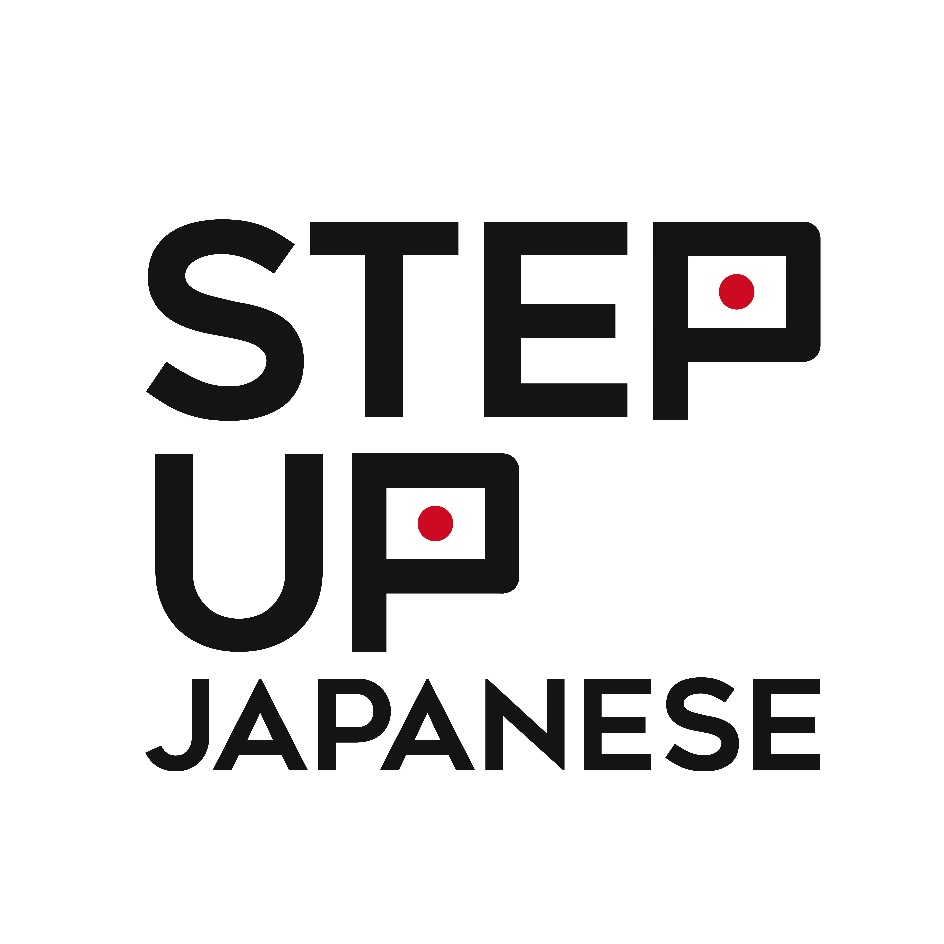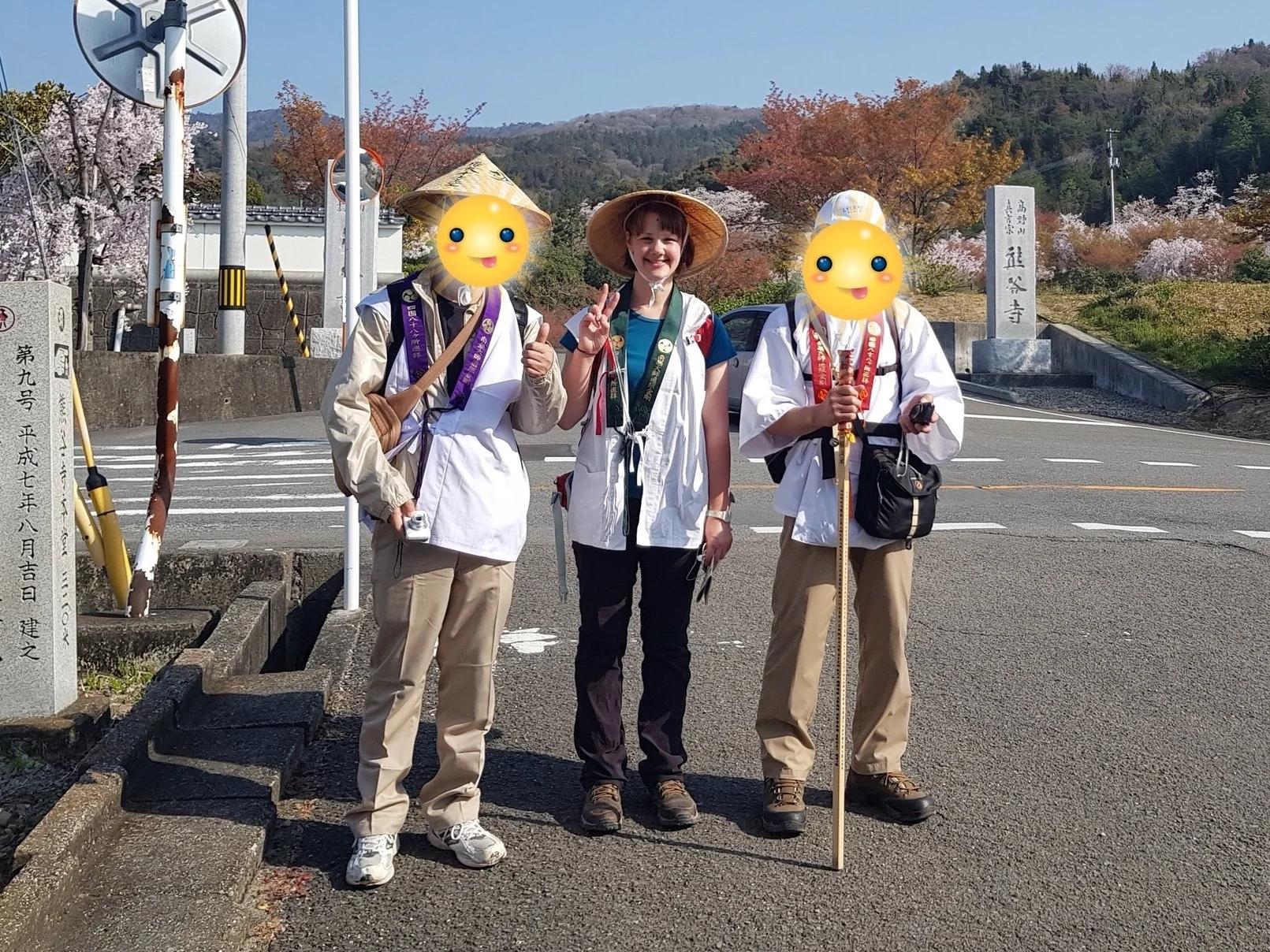Walking the Shikoku 88 Pilgrimage (Part 8) - O-settai, or, "I'll treasure this tissue case"
“Wait here. I want to give you o-settai.”
Near Kumadani-ji, temple number 8, we had stopped in front of some glorious cherry blossom, and I got chatting to two older gentlemen who were walking the trail. One told me he had never spoken to a gaijin-san, foreigner, before.
(The cynic in me wonders if that’s really true, or if by “foreigner” he meant “white person”…)
We took some pictures in front of the cherry blossom, and walked up the hill together.
Further up the road, a lady came out of her house and gave us some hard-boiled sweets.
The sweets were a form of o-settai, small gifts given to walking pilgrims. Traditionally, pilgrims didn't carry money, so they were helped along their way by gifts of food, lodging and other acts of generosity from local people.
“Wait here,” she said when she saw me, “I have something else for you.”
She came back with a colourful children’s section of the newspaper – a visual guide to the Shikoku pilgrimage, with readings for the kanji characters written above in hiragana.
It was several years old. I wondered if she had been saving it for a passing foreigner.
I briefly considered attempting to refuse it: I already had a good map, and I can read kanji, so I didn't need a children’s guide. The next non-Japanese person she met might have more use for it.
But explaining that would have felt arrogant, and you’re supposed to accept o-settai graciously, so I thanked her, and we went on our way.
The next day, I heard it again. “Wait here. I want to give you o-settai.”
I was alone this time. I had stopped to rest on a fading bench outside a children’s centre, and was enjoying my first iced can coffee in a couple of years.
There were no houses on this side of the road, but an elderly lady had come out of her house and crossed the busy road to strike up a conversation with me.
She referred to herself in the third person as obaa-chan, grandmother. She was 82.
The obaa-chan had walked the whole pilgrimage twice, she told me, and had hoped to do it a third time.
“But I’m too old to walk it again now, so I give o-settai instead.”
She went back into the house, and I saw her in the front room with a cardboard box. She did look frail. I wondered if I should follow her over the road so she didn't have to cross it again, but I didn't want to intrude.
“I must have given out hundreds of these,” she said proudly when she came back.
Inside the box were dozens of cotton tissue cases, in all different colours, each with a small packet of tissues inside.
“Did you make these?”
“Of course! Choose one.”
I picked out one with black cats sitting by front doors.
“Thank you very much. I’ll take good care of it.”
The tissue case had a secondary compartment, and inside that was a paper insert. It was a photocopy of handwriting - guidance for living a good life. “I like these words, so I included them too,” she added.
“When you use it, please remember the 82-year-old obaa-chan from Shikoku.”
The tissue case has travelled 6000 miles with me back to England, but I haven’t opened the tissues yet. I’m know she wanted me to use it; but I just want to keep it safe.
It smells faintly of incense.
I think about the obaa-chan sewing tissue cases. I wonder if she waits by the window in pilgrimage season – spring and autumn – waiting for walkers to pass by.
She gave me much more than a tissue case. She made me feel welcome, and showed me kindness. Perhaps that’s what o-settai is…? It’s about human connection. It’s not about things, it’s about people.
I’ll treasure this tissue case, I promise.
Related posts:
Walking the Shikoku 88 Pilgrimage (Part 1) - Plan, plan, plan!
Walking the Shikoku 88 Pilgrimage (Part 2) - The Best First Day in Japan
Walking the Shikoku 88 Pilgrimage (Part 3) - What To Wear
Walking the Shikoku 88 Pilgrimage(Part 4) - How to Talk to Strangers in Japanese
Walking the Shikoku 88 Pilgrimage (Part 5) - Signs of Shikoku
Walking the Shikoku 88 Pilgrimage (Part 6) - Shouting at the French
Walking the Shikoku 88 Pilgrimage (Part 7) - Five Types of Rest Stop You'll Find Hiking In Shikoku
And also: "I treasure this pen case"



